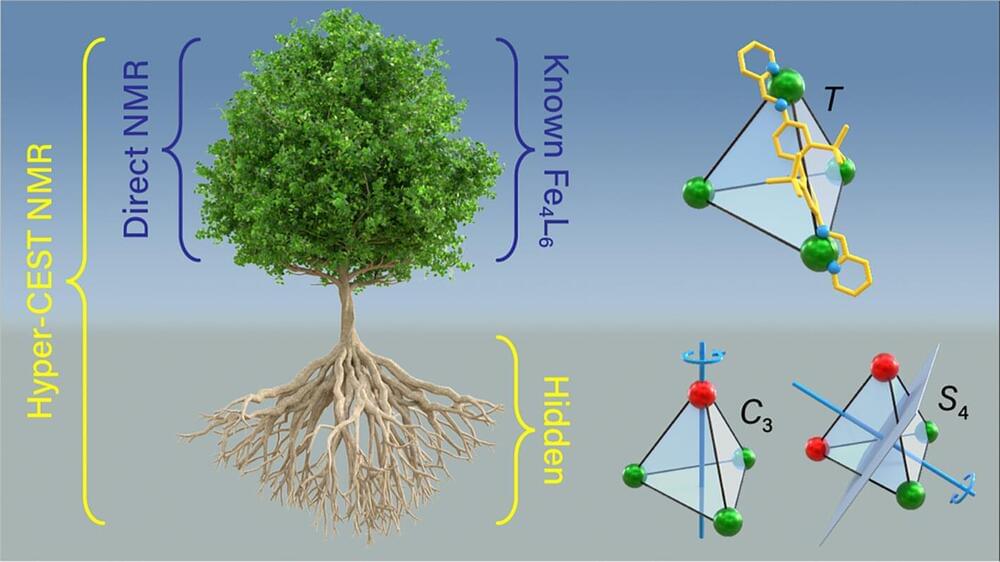NVIDIA says their 3D scene rendering AI runs up to 1,000 times faster than older models without sacrificing image quality.
Get the latest international news and world events from around the world.
Texture Map GCode Directly In Blender With NozzleBoss
We’ve seen this funky dual disk polar printer already recently, but [Heinz Loepmeier] has been busy working on it, so here’s an update. The primary focus here is nozzleboss, a blender plugin which enables the surface textures of already sliced objects to be manipulated. The idea is to read in the gcode for the object, and convert it to an internal mesh representation that blender needs in order to function. From there the desired textures can be applied to the surfaces for subsequent stages to operate upon. One trick that nozzleboss can do is to create weight maps to tweak the extrusion flow rate or print velocity value according to the pixel value at the surface — such ‘velocity painting’ can produce some very subtle surface effects on previously featureless faces. Another

trick is to use the same weight maps and simply map colours to blender text blocks which are injected into the gcode at export time. These gcode blocks can be used swap tool heads or extruders, enabling blending of multiple filament colours or types in the same object.
Some nice examples of such printing manipulation can be seen on [Heinz’s] instagram page for the project. So, going back to the hardware again, the first video embedded below shows the ‘dual disk polar printer’ fitted with a crazy five-extruders-into-one-nozzle mixing hotend setup, which should be capable of full CMYK colour mixing and some. The second video below shows an interesting by-product of the wide horizontal motion range of the machine, that the whole printing area can be shifted to a nozzle at the other end of the gantry. This enables a novel way to switch extruders, by just moving the whole bed and print under the nozzle of interest! One final observation — is that of the print surface — it does look rather like they’re printing direct onto a slab of marble, which I think is the first time we’ve seen that.
Interesting printer designs are being worked on a lot these days, here’s a really nice 5-axis prusa i3 hack, and if you want to stay in the cartesian world, but your desktop machine is just too small, then you can always supersize it.

Max Laughlin and his controversial theory: CERN sent us to a parallel universe?
The young man has made several statements that compromise the scientific community, but the most shocking is related to CERN and how it could have destroyed our universe.
Regarded as a genius child and listed as the “most intelligent young man in the world”, Max Laughlin surprised the world with his great intellectual abilities.
With only 13 years old he could develop from scratch its own device for energy access. A system that is capable of providing all the necessary energy without the need for oil, coal or solar energy.

Meta AI Team Open-Sources Mephisto: A New Platform For Open And Collaborative Way Of Collecting Data To Train ML Models
Training datasets are very important for experimenting with varied data to train new AI models. However, many commonly used public data sets contain labeling errors. This makes it challenging to train robust models, particularly for novel tasks. Many researchers use techniques such as employing a variety of data quality control procedures to overcome these shortcomings. However, there is no centralized repository consisting of examples of using these strategies.
Meta AI researchers have recently released Mephisto. It is a new platform to collect, share, and iterate on the most promising approaches to collecting training datasets for AI models. Researchers can exchange unique collecting strategies with Mephisto in a reusable and iterable format. It also allows them to change out components and quickly locate the exact annotations required, minimizing the barrier to custom task creation.
The team uncovers many common pathways for driving a complex annotation activity from concept to data collection in Mephisto. In addition to improving the quality of datasets, Mephisto also enhances the experience of the researchers and annotators who created the data set.

Artificial synapse created using capacitors
A new approach to in-memory computing proposes a new set up to create an artificial synapse that can both store and process data.
In this blossoming era of AI, efficient computational approaches to processing and storing large amounts of data are required. However, current computer designs have inherent performance limitations.
In recent years, research has been focused on the development of alternative computing architectures that mimic the brain. These devices, called neuromorphic computers, circumvent many of the issues associated with the traditional von Neumann architecture, which has been around since 1945 and is composed of processing and memory units.


Battery breakthrough doubles lifespan of electric car batteries
Engineers have discovered a way to more than double the lifespan of batteries used in smartphones and electric cars.
The battery breakthrough was successfully demonstrated by researchers at the University of Queensland in Australia, who increased the lifespan of a lithium-ion (li-ion) battery from several hundred charge/ discharge cycles, to more than 1,000.
“Our process will increase the lifespan of batteries in many things, from smartphones and laptops, to power tools and electric vehicles,” said Professor Lianzhou Wang from the Australian Institute for Bioengineering and Nanotechnology.
Meta’s AI luminary LeCun explores deep learning’s energy frontier
So-called energy-based models, which borrow concepts from statistical physics, may lead the way to ‘abstract prediction,’ says Yann LeCun, allowing for a ‘unified world model’ for AI capable of planning.

Hyper-CEST NMR technique reveals missing structure of a novel container molecule
Using the Hyper-CEST NMR technique, the team led by Leif Schröder from the Leibniz-Forschungsinstitut für Molekulare Pharmakologie (FMP) and the Deutsches Krebsforschungszentrum (DKFZ) has managed to reveal two previously little researched variants of a type of transport container from the class of metal–organic polyhedra (MOPs). The researchers want to use this knowledge to develop a novel type of contrast agent in MR (magnetic resonance) imaging.
The concept of a modular construction system proves useful in many applications for assembling complex structures for specific functions from individual, repeated sub-units. In chemistry, the principle can be used to construct a self-assembling network from smaller molecular units that acts as a transport container of a defined size. For example, several metal ions can be linked with organic molecules. These MOPs (metal–organic polyhedra) are used, for instance, to capture greenhouse gases or to pave the way for more effective chemotherapeutic agents by loading them with certain drugs, which they then release in the tumor. Several aspects of the behavior of these structures have not yet been adequately explored. This is partly because there are not always appropriate techniques available to observe the loading and unloading of these MOPs at the molecular level —often, no differences can be measured between the empty and loaded variants for either the container or its contents.
In cooperation with a team from the University of Oulu in Finland, Leif Schröder’s research group has now investigated MOPs that spontaneously assemble in solution from iron ions and an organic compound to form tetrahedra. In the process, the organic struts can be attached differently to the iron “nodes.” Essentially, this influences the properties of MOPs, such as their capacity to kill tumor cells. In the case of the MOP under study, however, it was previously thought that only one of the three theoretically predicted variants existed. The other two variants were considered too unstable because no analytical methods were able to detect them. Using a new method of magnetic resonance (hyper-CEST NMR), Schröder’s team member Jabadurai Jayapaul has now succeeded in demonstrating that these previously unknown variants do exist.
DeepMind Mafia, DishBrain, PRIME, ZooKeeper AI, Instant NeRF
Mar 31, 2022
Our 91st episode with a summary and discussion of last week’s big AI news!
Outline:
Applications & Business.
Meet the DeepMind mafia: These 18 alumni from Google’s AI research lab are raising millions for their own startups, from climate to crypto.
Nvidia unveils new technology to speed up AI, launches new supercomputer.